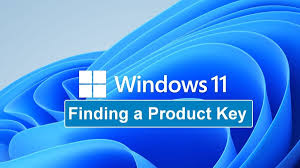In the past few times, Windows operating systems have continued to evolve, offering new features and enhanced security. With the introduction of Windows 11, Microsoft has presented a new approach to its user interface and functionality, capturing the attention of tech enthusiasts and everyday users alike. One key aspect that has piqued attention is the upcoming Windows 11 Home key licensing that promises to revolutionize how we access and personalize our computing experiences. The blog will discuss the ways in which these changes to licensing could influence the future of individual customers and companies.
A Glimpse into Licensing Evolution
For the longest time, Windows licensing has been straightforward, requiring users to purchase a key to activate their operating system. However in the new version of Windows 11, Microsoft is expected to implement a more flexible licensing model, potentially allowing for greater customization and user control. This shift is in line with the overall trend toward subscription-based services, offering consumers more freedom and flexibility. As an example, consumers could soon experience seamless switching between their personal and work devices without the need for multiple keys increasing productivity and convenience.
Personalization and User Experience
The shift to windows 11 home key licensing will significantly affect the way users customize their computer environments. By offering more dynamic license options Microsoft aims to cater to the various requirements of its customers regardless of whether they are casual users or professional developers. Enhanced personalization capabilities will allow users to alter their system settings, themes, and applications more precisely, creating an experience that is truly unique. This flexibility not only enhances the satisfaction of users, but also improves the bond between the consumer and the brand.
Implications for Security and Support
With the expected changes to licensing, there could be implications regarding technical support and security. The more flexible licensing model can facilitate better security measures, allowing Microsoft to deploy patches and updates with greater efficiency across various devices. Additionally, streamlined licensing might enable users to access support more easily and efficiently, since their systems will be constantly monitored and updated. A proactive method of security and support could be an important benefit in an era where cyber security threats are getting more sophisticated.
Looking Ahead
As we consider the future of Windows 11 Home key licensing It’s evident that Microsoft’s focus is on the flexibility, personalization, as well as enhanced security. These changes are a reflection of wider industry trends towards user-centered design and subscription models, aiming to offer a more personalised user experience that is efficient and effective. While the specifics of these licensing changes have not yet fully revealed, one thing is certain–the future for Windows 11 holds exciting possibilities for users of all kinds. If you’re a casual player, a creative professional, or a business executive These changes are sure to enhance your interactions with technology more intuitive and rewarding.

